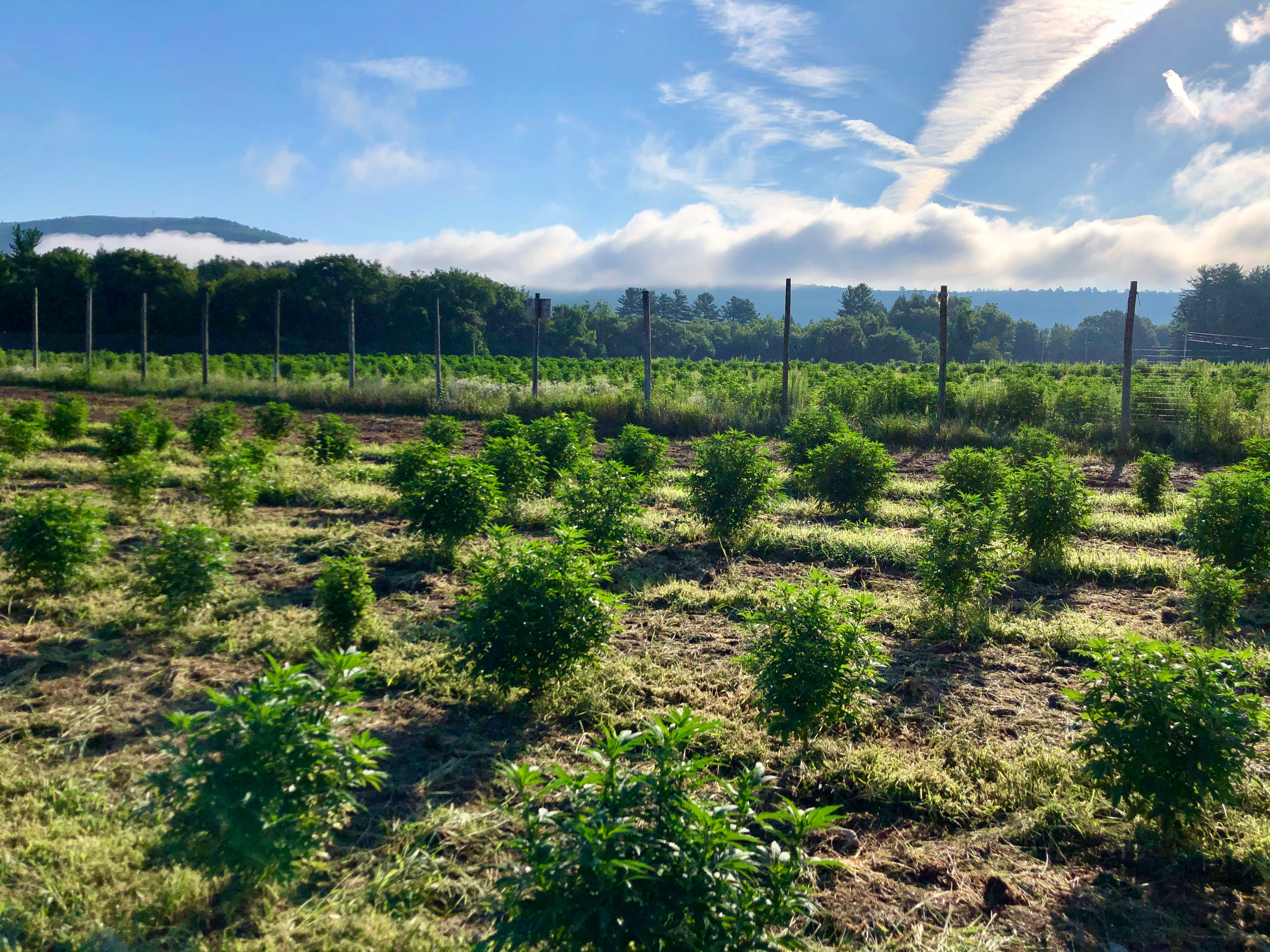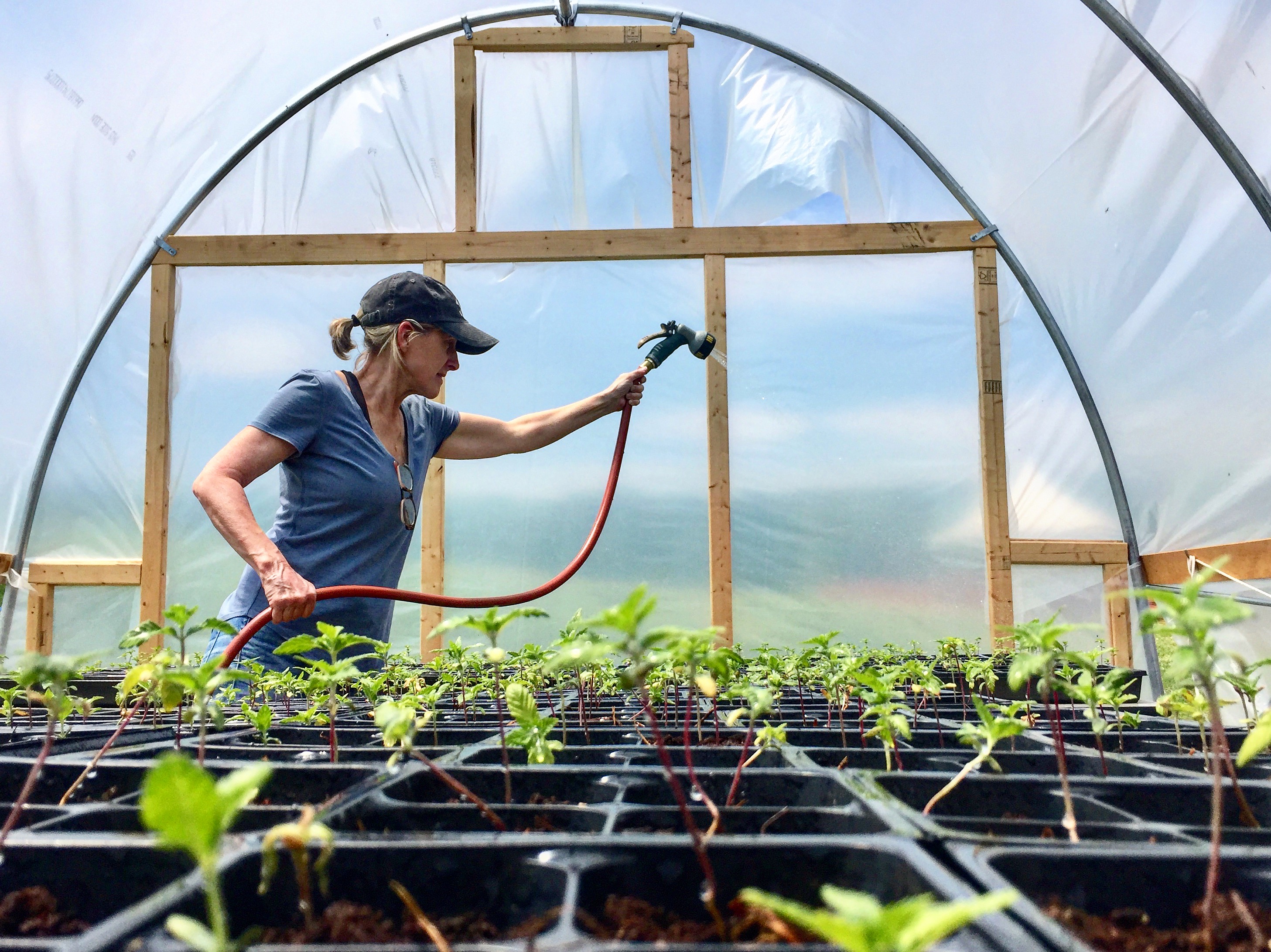Why Hemp
RESEARCH IS NEEDED
In 2014, our mother was diagnosed with Alzheimer’s. Although research is still in the beginning stages, there is already quite a bit published on the benefits of the cannabinoid oil found in the hemp plant. And as the state laws begin to shift in the country, the possibility to explore these benefits becomes more accessible and exciting. Bordertown Farm will begin producing CBD (cannabinoid) oil from hemp grown on our certified organic field. We believe in the benefits of CBD oil and hemp products and it’s general health benefits for all people as well as exciting research showing the possible relief for people with chronic illnesses.

HEMP VS. CANNABIS

HEMP HISTORY
The Columbia History of the World states that the oldest relic of human industry is a bit of hemp fabric dating back to approximately 8,000 BCE. George Washington and Thomas Jefferson both grew hemp. Ben Franklin owned a mill that made hemp paper. Jefferson drafted the Declaration of Independence on hemp paper. According to the Department of Energy, hemp as a biomass fuel producer requires the least specialized growing and processing procedures of all hemp products.
During America’s Colonial days, hemp was a cornerstone of civil development, and its production was considered necessary. England and Holland hoped that their American colonies would furnish enough hemp for their great navies, for which it was as important as flax, iron, and timber.
During the 1920’s and 30s the United Stated Department of Agriculture (USDA) had a hemp breeding program and put out numerous articles on hemp growing in Farmer’s Bulletins and in its Yearbooks.
In the 1930’s the Marihuana Tax Act of 1937 was passed. Once the Tax Act was passed the FBN (Federal Bureau of Narcotics) collected information on hemp and Cannabis equating the two plants thereby enforcing the provisions of the Act making it illegal to grow hemp.
Hemp was grown extensively in the U.S. during World War II; the U.S. Department of Agriculture even rolled out a Hemp for Victory campaign to encourage farmers to plant hemp after war with Japan cut off Asian imports of the crop. Henry Ford even experimented with hemp to build car bodies. But the last hemp processing plant in the U.S. closed in the mid-1950s, as a result of hemp regulations misinformation perpetuated during the 1940s and '50s that equated hemp with marijuana.
When the Controlled Substances Act was passed in 1970 the exemption for hemp was carried over from the Marihuana Tax Act, but without the provisions to register and license farmers, since there was no hemp industry to protest as there had been in 1937. All varieties of Cannabis were lumped together in Schedule 1 of the Act.
In 2014 the US Farm Bill allowed states to pass their own industrial hemp legislation to grow industrial hemp for purposes of research and development. After many years of prohibition, American farmers are finally reacquainting themselves with industrial hemp.
In January of 2015, The Industrial Hemp Farming Act (H.R. 525 and S. 134) was introduced in the House and Senate.
CBD OIL
Since Hemp is regulated to only contain 0.3% THC it essentially makes it impossible to feel any psychoactive effect. Hemp contains high Cannabinoid (CBD) content that works as an antagonist to THC. CBD (Cannabinoid) oil has been shown to be effective for decreasing anxiety and helping in a number of inflammation-related problems, including arthritis and other inflammatory ailments.
Our bodies were designed to interact with cannabinoids. The human body is comprised of receptors that interact exclusively with cannabinoids like CBD. The Endocannabinoid system helps maintain the balance and health level of the body. When the body suffers from cannabinoid deficiency, taking CBD can help equalize the deficiency.

Overwhelmed by the choice of CBD Products out there?
ALL CBD IS NOT THE SAME
Much like fine wine varietals; soil, climate, genetics and curing method all play an important role in the final product. Throughout the growing season, these environmental factors develop hemp terpenes within the plant, which give full spectrum CBD extract its distinctive taste, smell and color. These essential organic compounds combined with the CBD molecule to give the maximum health benefits, known in the industry as the Entourage Effect. Slow curing of the harvested hemp plant best preserves these terpenes. Large-scale, commercial CBD producers use high temperature ovens to quickly dry the green plant. This process can boil off many of these volatile terpenes and products made with isolate (pure CBD) alone contain none of these vital chemical components.
Look for single source hemp. Large scale commercial producers buy wholesale lots of hemp from various sources. One would hope that these commercial farmers put as much care into their hemp as the small-scale farmer that grows her own hemp to produce her own CBD products but, adulteration with low-quality hemp is an industry wide problem. For the most consistent and high-quality CBD products, look to the small-scale farmer who controls the production of their CBD products from seed to bottle, made from a single source of hemp.
The label says “Organic.” Manufacturer have been known to print the word ‘Organic’ on their label to give their products an edge over the competition. Such a practice is not legal but, compliance on thousands of products has been difficult for the FDA to enforce. If a farmer or manufacturer truly makes an organic product, they will proudly display a state, Federal or regional organic certification emblem on their label or literature. Look for USDA Certified Organic, NOFA, Clean Green Certification or state organic certification.
ROUNDUPâ (Glyphosate) Herbicide; is the brand name of a systemic, broad spectrum glyphosate-based herbicide originally produced by Monsanto since acquired by Bayer in 2018. Glyphosate is the most widely used herbicide in the United States. Awareness of the human health risks from exposure to this chemical are increasing. It has been used on GMO crops for decades. Glyphosate disrupts the Shikimate Pathway in our gut bacteria. Pathogenic strains of gut bacteria, like Salmonella and Clostridium, are resistant to glyphosate exposure, while glyphosate attacked the beneficial strains such as Enterococcus, Bacillus, and Lactobacillus. This reaction to glyphosate disrupts your body’s Gut/Brain chemical communication and leads to illness and disease. Ironically, this is the exact opposite of what CBD does when supplementing your diet with natural, organically grown CBD. Full spectrum CBD restores depleted chemical messengers and helps you achieve equilibrium - homeostasis. Any reputable CBD farmer will be able to provide soil and product testing laboratory reports, verifying their product is herbicide and pesticide free.

Family Farm Producers vs. Big Pharma Manufactures. We have a choice with whom we chose to support with our hard-earned dollars. Large-scale producers use economies of scale to produce lower cost CBD products but, as mentioned above, use high temperature hemp dryers and source their hemp from commercial growers. Smaller scale, single origin hemp farmers compete by taking the time to hand prune individual hemp plants to produce greater yields, use traditional, slow cure of the harvest in barns to preserve terpenes and proudly oversee the entire process to insure the highest quality CBD. As important as it is to choose the highest quality products available, when you choose to support a family farm, in a small way, you are choosing to preserve the rural landscape of scenic, small farms that once flourished along America’s bi-ways and are still a vital way of life.
